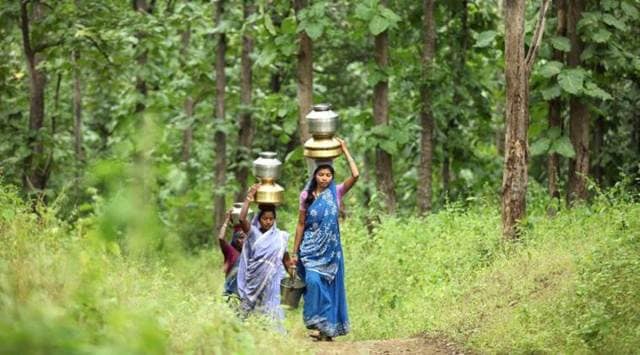- India
- International
Empower local communities for extensive forest restoration and climate change mitigation: Study
Providing communities with the right to manage forests and implement forest restoration offers a just and sustainable way to address climate change.
 The study -- 'Global forest restoration and the importance of prioritising local communities' -- was published on August 25 in the Nature Ecology and Evolution journal. (Representatioanl)
The study -- 'Global forest restoration and the importance of prioritising local communities' -- was published on August 25 in the Nature Ecology and Evolution journal. (Representatioanl)Nearly 300 million people live in areas with high potential for forest restoration in the tropics, a new study has found. It has also identified the importance of empowering local communities to manage forest restoration as a just and sustainable mechanism for climate change mitigation.
Providing communities with the right to manage forests and implement forest restoration offers a just and sustainable way to address climate change. The study reveals that most forest restoration opportunity areas and their associated populations are found in countries with strong legal foundations for community forest ownership. It found that 22 countries, including India, with pre-existing legal framework and evidence of community forest ownership, contain two-thirds of forest restoration opportunity areas. Further, these 22 countries contain 70 per cent of people living in or near forest restoration opportunity areas.
The study — ‘Global forest restoration and the importance of prioritising local communities’ — was published on August 25 in the Nature Ecology and Evolution journal. This is one of the first comprehensive studies to examine the extent to which opportunities for tropical forest restoration overlap with global populations and levels of economic development.
The study by an international group of experts from the Indian School of Business, Dartmouth College (US), University of Manchester (UK), University of Sheffield (UK), and University of Michigan (US), finds that 294.4 million people presently live in areas with high potential for forest restoration in the tropics, and that over one billion people live within 8 km of such high-potential sites. In low-income countries, almost 12 per cent of the population lives in areas considered important for forest restoration.
Dr Ashwini Chhatre, a co-author and Professor of Public Policy at the Indian School of Business, said via email that the study’s findings “show the path to further action on climate change by identifying countries where investments in forest landscape restoration will create the highest synergies between mitigation and human development”.

“Global efforts to accelerate forest regeneration must include local communities as equal partners for maximum benefits on multiple dimensions,” he said.
Talking specifically about India, he said the country already has a robust legal framework for empowering local communities living in or near forest areas – the Community Forest Resource rights provision in the Forest Rights Act 2006. This has already been implemented in several states, with Maharashtra and Gujarat as the leaders, in setting up successful pilots for community rights.
Within the last two years, Chhattisgarh, Jharkhand, and Odisha have also prioritised expansion of community rights as a mechanism for empowerment and poverty alleviation.
Dr Arun Agrawal, co-author of the study and Professor of Sustainability at the University of Michigan, emphasised, “We highlight the critical need for close ties between researchers, decision makers, and local communities to secure greater well-being for people and ecosystems. Those working on forests – whether government agencies or researchers – forget far too often the necessity of working with people, not against them.”
Dr Anjal Prakash, research director and adjunct associate professor at Bharati Institute of Public Policy, Indian School of Business, told The Indian Express that rehabilitation of migrants is also of concern, especially post-Covid. “Most of the people who migrated to urban locations in India were from some of the most poorer states, which are also forested. If forest restoration and community rights of forests are granted to forest-dependent communities, their income will also increase. The co-benefit of strengthening the green economy will also be in terms of adaptation and mitigation to climate change,” Dr Prakash told The Indian Express.
The research team employed data published by researchers at the Earth Innovation Institute, NASA, the Rights and Resources Initiative, the World Bank, and the World Resources Institute.
Click here to join Express Pune WhatsApp channel and get a curated list of our stories
Apr 26: Latest News
- 01
- 02
- 03
- 04
- 05






























